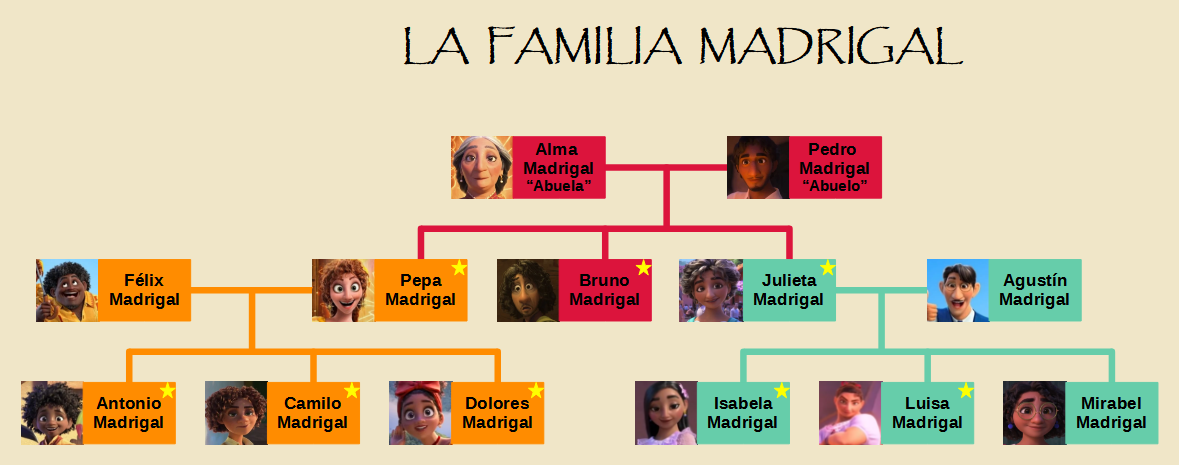I’ve just watched the Disney film “Encanto” and there was plenty of Spanish in it
I’ve just watched the Disney film “Encanto”, and there was plenty of Spanish in it, so I thought I’d write a quick article about how we can use any bit of Spanish we find to improve our language skills.
What is “Encanto” about?
The film is about a family who live in a magical house, but then the house starts to lose its magical abilities, and it’s up to Mirabel to figure out why.
Encanto
The word “encanto” has quite a few different translations. It can mean:
a spell / charm / beauty / attractiveness / loveliness
Have a look at it on WordReference: encanto
I love it
But there is also a verb, “encantar”. If you’ve learnt any Spanish before, you might have seen the phrase, “me gusta”. Well, “encantar” is used a lot like that.
me encanta — I love / I love it
You can put any verb on the end of “me encanta” to say what it is you love doing:
me encanta cantar — I love singing
me encanta hablar español — I love speaking Spanish
me encanta viajar — I love travelling
You can also put any noun on the end of “me encanta”, but there is one thing to remember. Sometimes, it’s useful to look at the literal meaning of phrases in order to understand how they work grammatically. If you look at “me encanta” literally, you’ll see it means “it makes me happy”, so when you put a verb on the end, you get:
me encanta cantar — I love singing (it makes me happy to sing)
me encanta viajar — I love travelling (it makes me happy to travel)
If you put a noun on the end of “me encanta”, it means “noun makes me happy”
me encanta el queso — I love cheese (cheese makes me happy)
me encanta esta película — I love this film (this film makes me happy)
me encanta el vino — I love wine (wine makes me happy)
But if you put a plural noun on the end of “me encanta”, you’d get something like “me encanta los perros”, which would literally mean, “dogs makes me happy”. This isn’t grammatically correct, since you would say in English, “dogs make me happy”. So, you have to use the plural version of “me encanta” when you’re using a plural noun: me encantan.
me encantan los perros — I love dogs (dogs make me happy)
me encantan las vistas — I love the views (the views make me happy)
me encantan mis botas nuevas — I love my new boots
The same thing goes with “me gusta”. This phrase means “I like”, or literally, “it pleases me”. You can put any verb on the end of “me gusta” or any singular noun. Just like with me encanta/me encantan, you have to use “me gustan” if you’re using a plural noun:
me gusta cantar — I like singing
me gusta hablar español — I like speaking Spanish
me gusta viajar — I like travelling
me gusta el queso — I like cheese
me gusta esta película — I like this film
me gusta el vino — I like wine
me gustan los perros — I like dogs
me gustan las vistas — I like the views
me gustan mis botas nuevas — I like my new boots
You can change the word “me” in “me encanta(n)” and “me gusta(n)” to say “you like” and “he likes” etc…
I’ll conjugate “me encanta”, but you can do the same with “me gusta”.
me encanta — I love
te encanta — you love
le encanta — he loves / she loves / you love
nos encanta — we love
os encanta — you love
les encanta — they love / you love
¿Qué te gusta hacer? — What do you like doing?
le gusta ir de compras — he/she likes shopping
nos gusta el vino — we like wine
nos encantan los gatos — we love cats
les encanta leer — they love reading
no les gustan los perros — they don’t like dogs
La Familia Madrigal
The main family in “Encanto” are called “La Familia Madrigal”, and the matriarch is the “abuela” called “Alma”. The word “abuela” means “grandmother” in Spanish, and she lives with her enormous family in a magical house.
Here’s a family tree of La Familia Madrigal:

So, “abuela” means “grandmother” and “abuelo” means “grandfather”. You’ll see that a lot in Spanish: the words for female family members end in an “a”, whilst the words for male family members are the same, but they end in an “o” instead.
abuela — grandmother
abuelo — grandfather
tía — aunty
tío — uncle
prima — cousin (female)
primo — cousin (male)
sobrina — niece
sobrino — nephew
hermana — sister
hermano — brother
hija — daughter
hijo — son
esposa — wife
esposo — husband
The only odd ones out are the words for mother and father:
madre — mother
padre — father
La Casita
Another huge part of the family in the film Encanto is the magical house. The word for “house” in Spanish is “casa”, but you’ll hear the characters call their house “casita” a lot. Whenever you see the suffixes -ito and -ita on the end of a noun in Spanish, it means a smaller version of it.
un perro — a dog
un perrito — a little dog
un gato — a cat
un gatito — a kitten
un poco — a bit
un poquito — a little bit
mujer — lady
mujercita — young lady
hombre — man
hombrecito — young man
So, when they say “casita”, they really mean “little house”. However, there is another reason Spanish people put “ito” or “ita” on the end of words: they can be terms of endearment.
You’ll hear this a lot in Spanish, especially with names. Even in the film Encanto, they add “ito” to the end of some of the names. One character called “Bruno” is called “Brunito” a few times. Another character called “Antonio”’s name is shortened to “Toñito”. And another name for “dad” is “papá”, and a couple of times, the main character in Encanto calls her dad “papito”, which means “daddy”.
They use a lot of terms of endearment throughout the film. Have a look at some of these:
mi corazón — my heart
mi vida — my life
mi amor — my love
All of those words are some common terms of endearment in Spanish, but there are lots more.
Mi alma — my soul
This one is a very strong word, and it’s really reserved for very significant partners
Mijo / Mija — my son / my daughter
These two words are shortened versions of “mi hijo” and “mi hija”, which mean “my son” and “my daughter”. You can make them even more endearing by saying, “mijito” and “mijita”. All of these words are used a lot by parents.
Mi cielito — my little sky
This word is usually reserved for children, but it can be used between lovers occasionally, too.
Tío / Tía — uncle / aunty
A literal translation of “tío” is “uncle”, and “tía” is “aunty”, but you’ll also hear them used as terms of endearments between friends, especially in Spain. They’re sort of like the equivalents of the English words “mate” or “buddy” or “pal”.
Dos Oruguitas — Two little caterpillars
Another word used in this film, which is a diminutive term, is “oruguita”, which means “little caterpillar”.
una oruga — a caterpillar
una oruguita — a little caterpillar
This word is used towards the end of the film in a beautiful song called, “Dos Oruguitas”, which means “Two Little Caterpillars”. It’s a very beautiful song, and it’s completely sung in Spanish. Let’s have a look at just the first verse:
Dos oruguitas enamoradas
Pasan sus noches y madrugadas
Llenas de hambre
Siguen andando y navegando un mundo
Que cambia y sigue cambiando
dos oruguitas enamoradas — two little caterpillars who are in love
The adjective “enamorado” means “in love” or “enamoured”
pasan sus noches y madrugadas — spend their nights and early mornings
In Spanish, the “madrugada” is the early morning, or “the wee hours of the morning”. There is a verb, “madrugar”, which means “to get up early”.
Me voy a la cama porque mañana tengo que madrugar — I’m going to bed because tomorrow I have to get up early
So, we have “two little caterpillars who are in love spend their nights and early mornings…”
llenas de hambre — full of hunger
The adjective “lleno” means “full” in most senses of the word (it’s “llenas” in this song, because it’s describing “dos oruguitas”, which are feminine plural):
estoy lleno de entusiasmo — I’m full of enthusiasm
la caja está llena — the box is full
estoy lleno y no puedo comer postre — I’m full and I can’t eat dessert
There’s also a verb, “llenar”, which means, “to fill up”.
ella llenó la casa de felicidad — she filled the house with happiness
¿puedo llenar mi botella de agua? — can I fill up my bottle with water?
Two little caterpillars who are in love spend their nights and early mornings full of hunger
siguen andando y navegando un mundo — they keep going and navigating a world
The verb “seguir” means “to follow”, but it can also mean “to keep” as in “to keep doing something”.
el perro me sigue por todas partes — the dog is following me everywhere
When you want to use it to mean “to keeping -ing”, you have to put the next verb in the gerund (that’s the verb form that ends in -ando or -iendo)
seguió corriendo — he kept running / he kept on running
debes seguir aprendiendo — you must keep learning
sigo pensando en mi familia — I keep thinking about my family
Two little caterpillars who are in love spend their nights and early mornings full of hunger, they keep going and navigating a world…
que cambia y sigue cambiando — that changes and keeps changing
The last line uses the verb “cambiar” in the present tense to say that the world changes, but then it uses the “seguir + gerund” construction to say that it keeps changing.
So, that was just a few things that we can learn in Spanish from the film “Encanto”. Hopefully, you’ve seen how we can turn anything into a Spanish-learning moment!
Gracias :-)
Kieran
